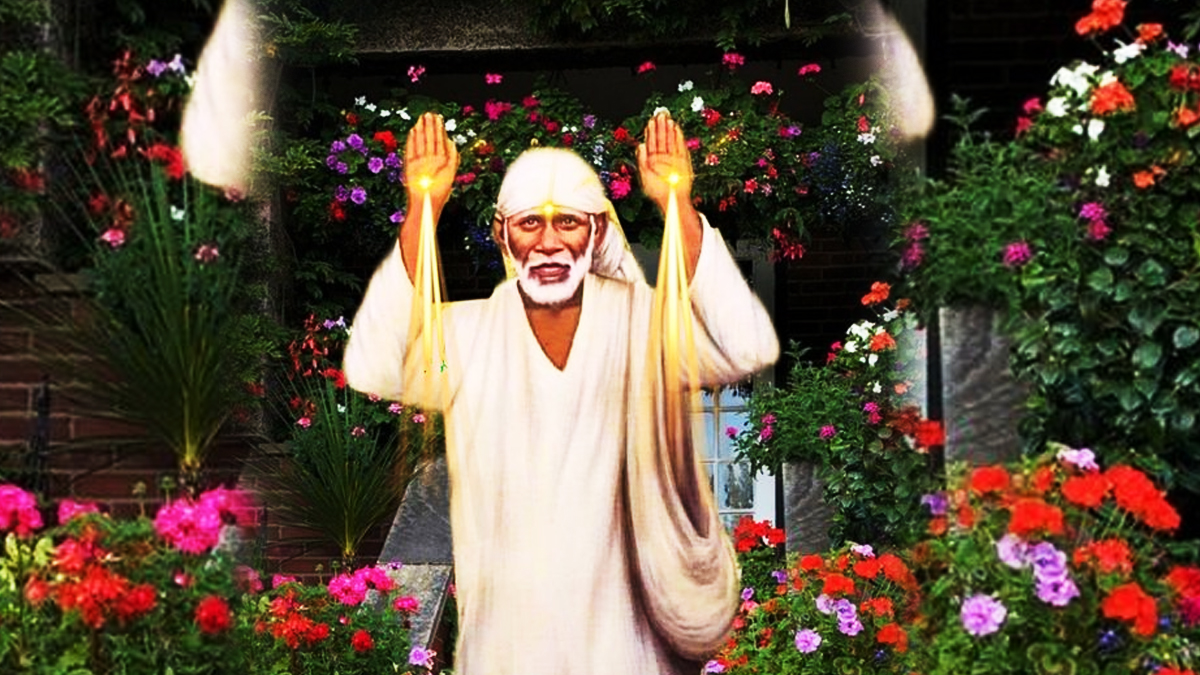Introduction
Sai Baba, also known as Shirdi Sai Baba, was a revered spiritual master and saint who lived in the late 19th and early 20th centuries in Shirdi, Maharashtra, India. His teachings and messages continue to inspire millions of people around the world.
Here are 40 uplifting Sai Baba messages that can guide us towards leading a meaningful and fulfilling life.
1. Faith and Patience
“Have faith and patience. Trust in the divine plan. Everything happens for a reason.”
2. Love and Compassion
“Spread love and compassion. Treat all beings with kindness and respect.”
3. Selfless Service
“Serve others selflessly. Help those in need without expecting anything in return.”
4. Inner Peace
“Find inner peace. Let go of worries and embrace tranquility.”
5. Contentment
“Be content with what you have. Material possessions do not bring lasting happiness.”
6. Forgiveness
“Forgive others and let go of grudges. Forgiveness brings inner healing.”
7. Humility
“Stay humble and grounded. Pride leads to downfall.”
8. Trust in God
“Have unwavering trust in God. He knows what is best for you.”
9. Practice Meditation
“Meditate regularly. Connect with your inner self and experience divine bliss.”
10. Be Grateful
“Count your blessings. Cultivate an attitude of gratitude.”
11. Seek the Truth
“Seek the truth. Question everything and find your own path.”
12. Let Go of Ego
“Release your ego. Embrace humility and surrender to the divine.”
13. Practice Non-violence
“Practice non-violence in thoughts, words, and actions. Respect all life forms.”
14. Be Mindful
“Live in the present moment. Be aware of your thoughts and actions.”
15. Overcome Fear
“Conquer your fears. Have faith in yourself and the divine.”
16. Embrace Simplicity
“Simplify your life. Find joy in the little things.”
17. Cultivate Virtues
“Cultivate virtues like honesty, integrity, and compassion. They are the essence of a noble character.”
18. Practice Detachment
“Practice detachment from material possessions. True freedom lies in letting go.”
19. Be a Source of Inspiration
“Inspire others through your actions. Be a beacon of light in the world.”
20. Embrace Unity
“Recognize the oneness of all beings. Embrace unity and harmony.”
21. Stay Positive
“Maintain a positive mindset. Your thoughts shape your reality.”
22. Practice Devotion
“Develop devotion towards the divine. Offer your love and prayers.”
23. Seek Inner Guidance
“Listen to your inner voice. It is the voice of your higher self.”
24. Embrace Change
“Embrace change with an open heart. It is the only constant in life.”
25. Lead a Simple Life
“Lead a simple and meaningful life. Material possessions are temporary.”
26. Practice Silence
“Spend time in silence. It is in silence that you can hear the divine.”
27. Be Mindful of Speech
“Speak words of kindness and truth. Your words have the power to heal or hurt.”
28. Embrace Patience
“Cultivate patience in all aspects of life. Good things come to those who wait.”
29. Serve Humanity
“Serve humanity with love and compassion. Every act of service makes a difference.”
30. Practice Gratitude
“Express gratitude for the blessings in your life. Gratitude attracts more abundance.”
31. Be Mindful of Thoughts
“Be mindful of your thoughts. They shape your reality and influence your actions.”
32. Embrace Acceptance
“Accept things as they are. Resistance only causes suffering.”
33. Seek Inner Peace
“Seek inner peace amidst the chaos of life. It is your true nature.”
34. Practice Graciousness
“Be gracious in victory and defeat. Treat others with respect and dignity.”
35. Let Go of Attachments
“Release attachments to people and outcomes. True freedom lies in detachment.”
36. Embrace the Power of Prayer
“Harness the power of prayer. It connects you to the divine and brings miracles into your life.”
37. Practice Self-reflection
“Take time for self-reflection. It helps you understand your true purpose in life.”
38. Be of Service to Others
“Be of service to others. Your actions have the power to uplift and inspire.”
39. Practice Mindful Eating
“Practice mindful eating. Nourish your body with healthy food and gratitude.”
40. Trust the Divine Timing
“Trust in the divine timing. Everything happens at the right moment.”
Conclusion
Sai Baba’s messages serve as a guiding light for those seeking spiritual growth and a meaningful life. By incorporating these teachings into our daily lives, we can cultivate love, compassion, and inner peace. Let us embrace these messages and strive to make a positive difference in the world.






